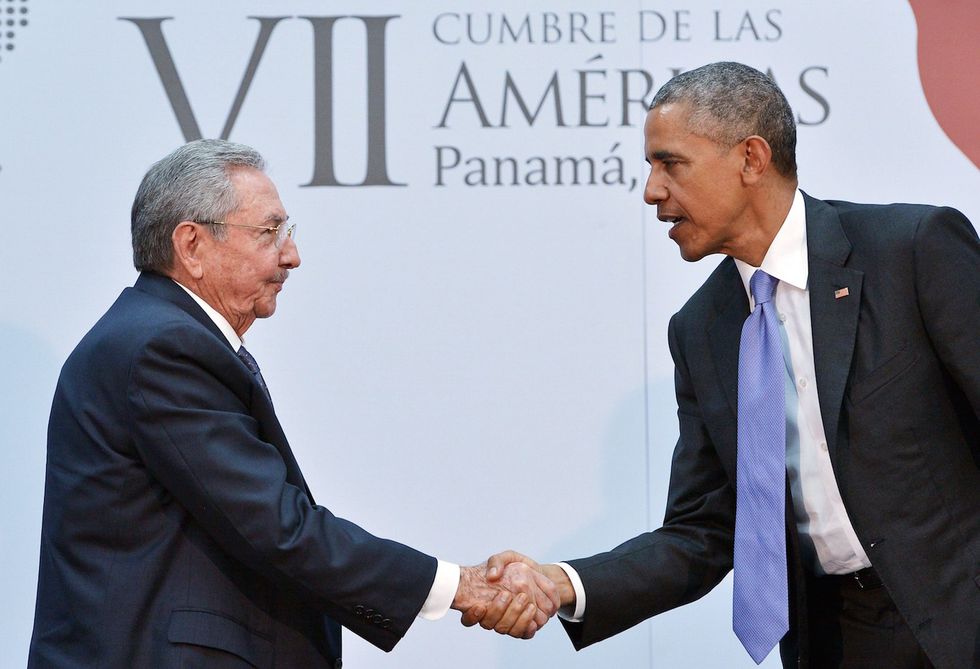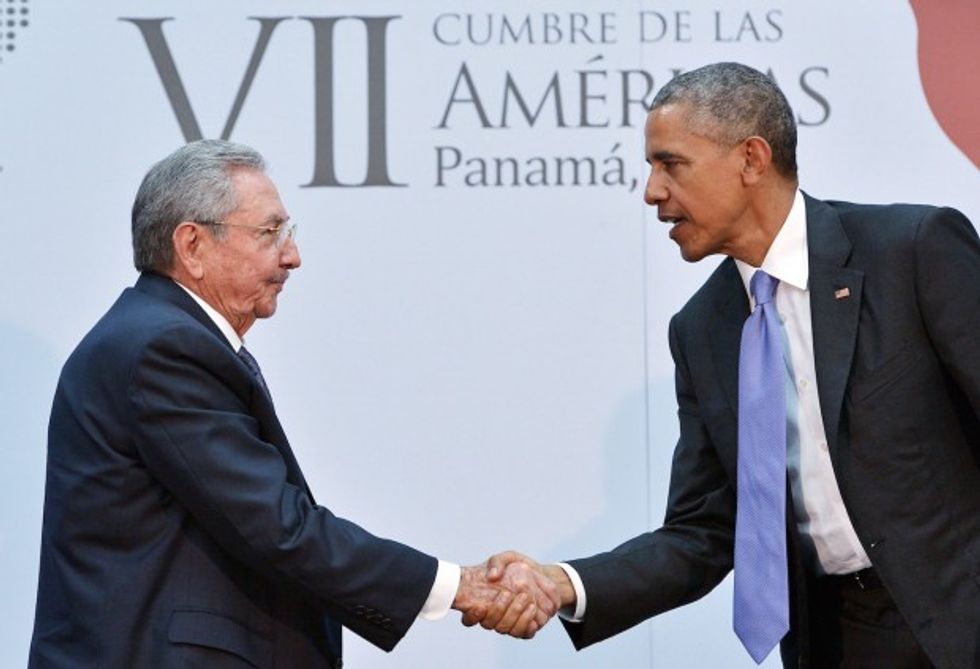
U.S. President Barack Obama shakes hands with Cuba's President Raul Castro during a meeting on the sidelines of the Summit of the Americas at the ATLAPA Convention center on April 11, 2015 in Panama City. (MANDEL NGAN/AFP/Getty Images)

WASHINGTON (AP) — President Barack Obama will announce Wednesday that the U.S. and Cuba have reached an agreement to open embassies in Havana and Washington, a senior administration official said.
The announcement marks a major step in ending hostilities between the longtime foes.
The U.S. and Cuba have been negotiating the reestablishment of embassies following the Dec. 17 announcement that they would move to restore ties.
For Obama, ending Washington's half-century freeze with Cuba is seen as a major element of his foreign policy legacy. He has long touted the value of engagement and argued that the U.S. embargo on the communist island just 90 miles south of Florida was ineffective.

Obama and Secretary of State John Kerry are expected to speak Wednesday morning about the embassy openings. The official insisted on anonymity because the official was not authorized to speak publicly about the matter ahead of the president.
Since the late 1970s, the United States and Cuba have operated diplomatic missions called interests sections in each other's capitals. The missions are technically under the protection of Switzerland, and do not enjoy the same status as full embassies.
While the opening of embassies marks a major milestone in the thaw between the U.S. and Cuba, significant issues remain as the countries look to normalize relations. Among them: talks on human rights; demands for compensation for confiscated American properties in Havana and damages to Cuba from the embargo; and possible cooperation on law enforcement, including the touchy topic of U.S. fugitives sheltering in Havana.
—